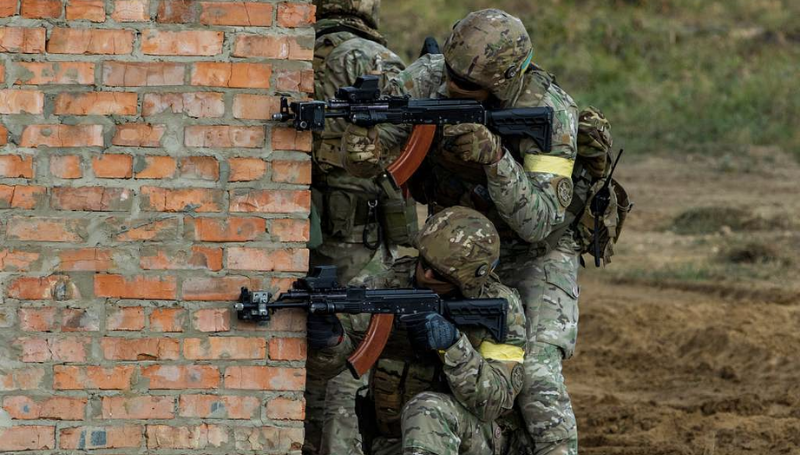Eric Schmitt, Julian E. Barnes, and Helene Cooper
NY Times, June 25, 2022
“What is an untold story is the international partnership with the special operations forces of a multitude of different countries.”
As Russian troops press ahead with a grinding campaign to seize eastern Ukraine, the nation’s ability to resist the onslaught depends more than ever on help from the United States and its allies — including a stealthy network of commandos and spies rushing to provide weapons, intelligence and training, according to U.S. and European officials.
Much of this work happens outside Ukraine, at bases in Germany, France and Britain, for example. But even as the Biden administration has declared it will not deploy American troops to Ukraine, some C.I.A. personnel have continued to operate in the country secretly, mostly in the capital, Kyiv, directing much of the vast amounts of intelligence the United States is sharing with Ukrainian forces, according to current and former officials.
At the same time, a few dozen commandos from other NATO countries, including Britain, France, Canada and Lithuania, also have been working inside Ukraine. The United States withdrew its own 150 military instructors before the war began in February, but commandos from these allies either remained or have gone in and out of the country since then, training and advising Ukrainian troops and providing an on-the-ground conduit for weapons and other aid, three U.S. officials said. Link
Thomas Gibbons-Neff and Andrew E. Kramer contributed reporting from Ukraine.
The War in Ukraine
Eric Schmitt is a senior writer who has traveled the world covering terrorism and national security. He was also the Pentagon correspondent. A member of the Times staff since 1983, he has shared four Pulitzer Prizes. @EricSchmittNYT
Julian E. Barnes is a national security reporter based in Washington, covering the intelligence agencies. Before joining The Times in 2018, he wrote about security matters for The Wall Street Journal. @julianbarnes • Facebook
Helene Cooper is a Pentagon correspondent. She was previously an editor, diplomatic correspondent and White House correspondent, and was part of the team awarded the 2015 Pulitzer Prize for International Reporting, for its coverage of the Ebola epidemic. @helenecooper


